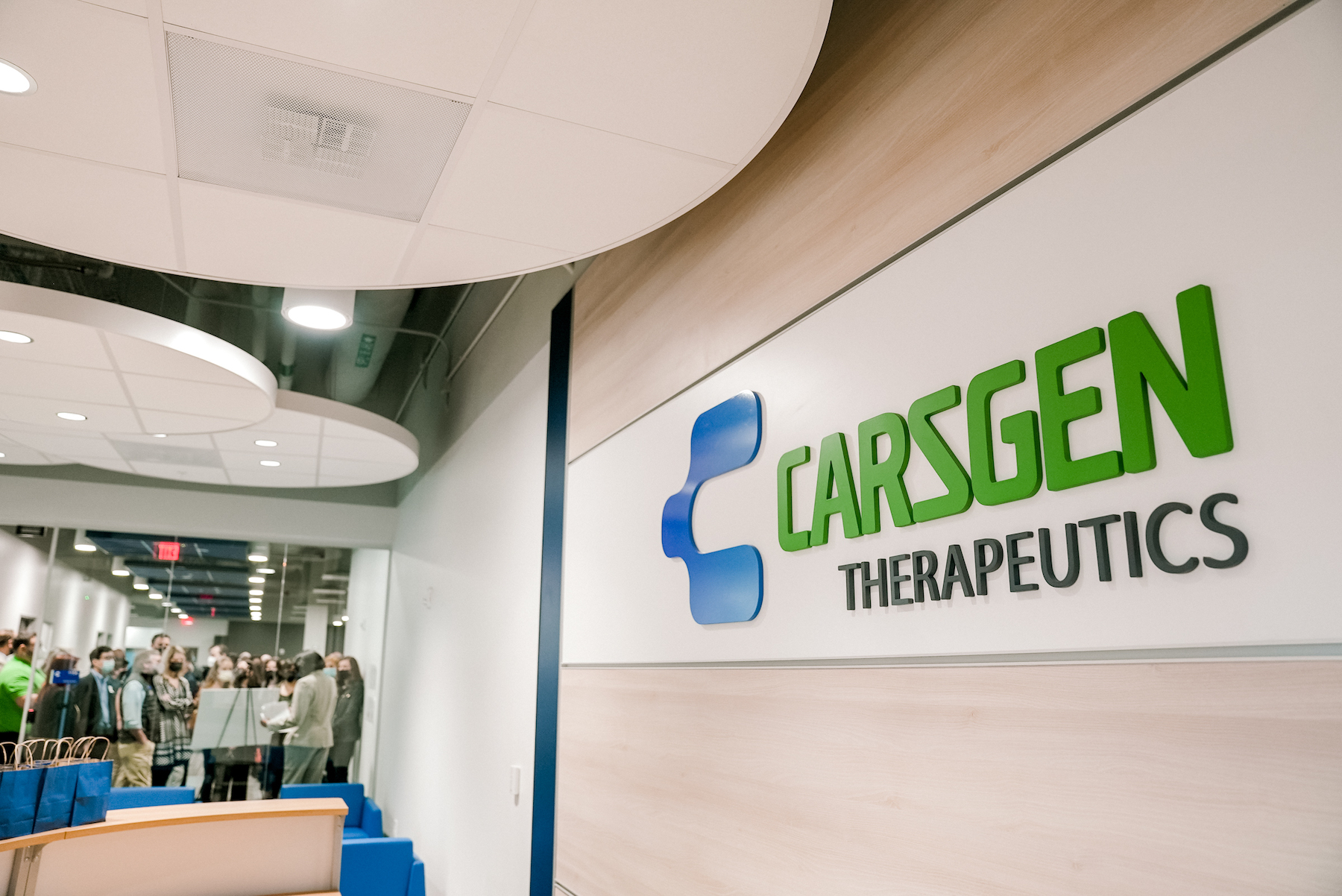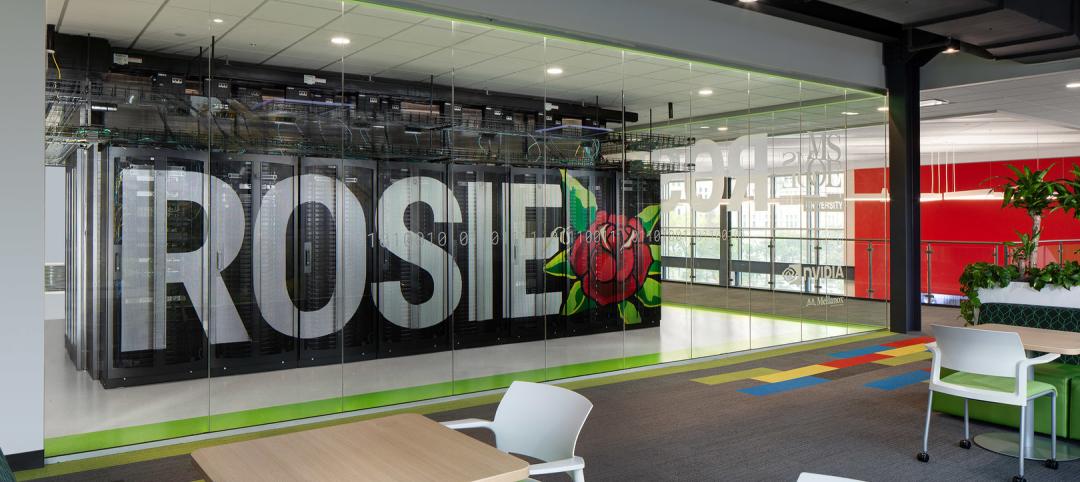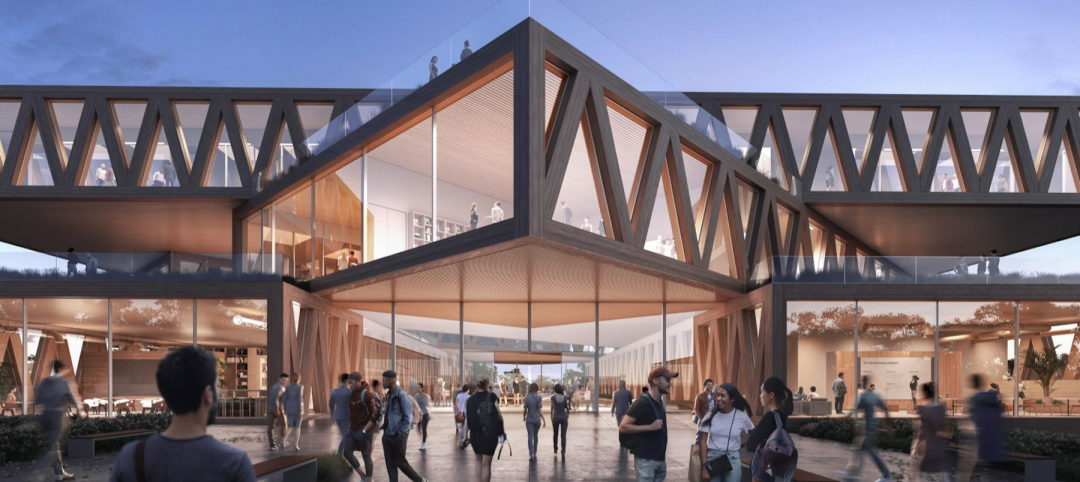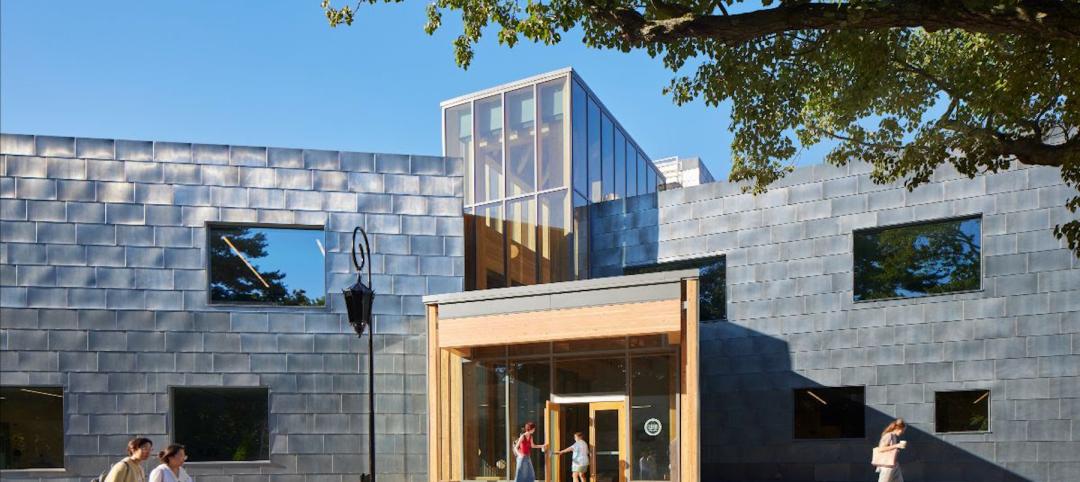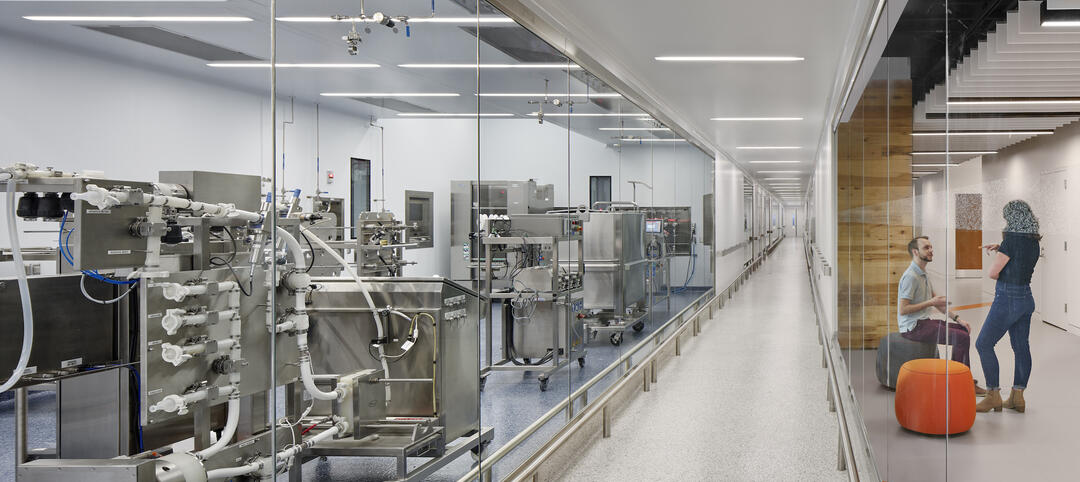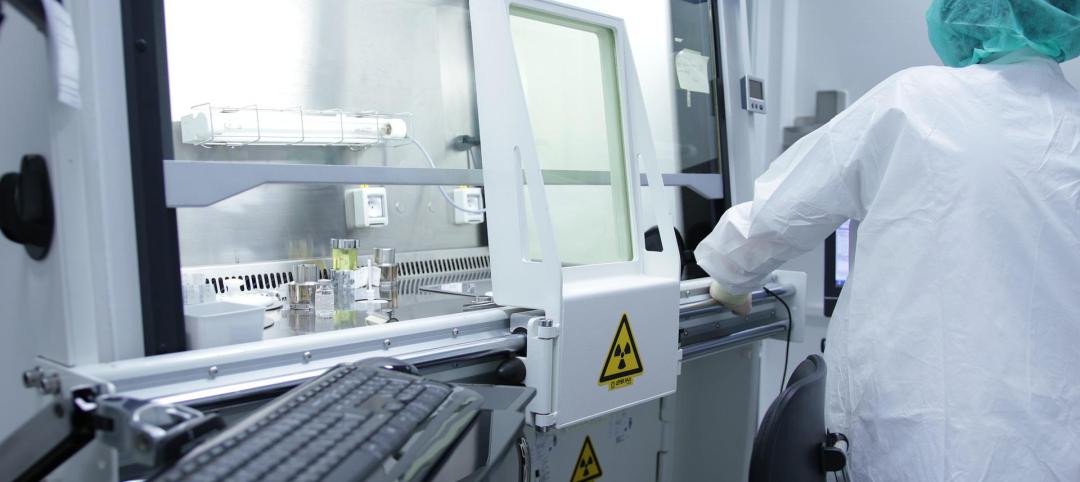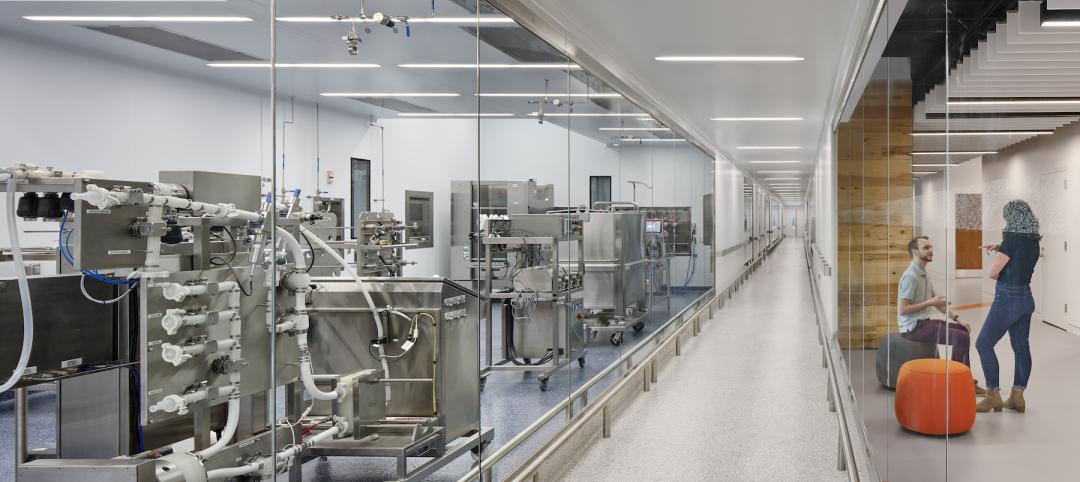In late January, CARsgen Therapeutics, a biopharmaceutical company with operations in China and the U.S., started moving employees into a biomanufacturing facility in Durham, N.C., the company’s first such operations in North America.
CARsgen has clinical offices in Houston, and its holding company was founded in Shanghai in 2014. It is investing $157 million for the North Carolina campus, which is expected to eventually house 200 workers by 2026. That campus is being developed in two phases: the first (which opened officially on February 21) is a 37,000-sf research and development lab for early-stage manufacturing of chimeric antigen receptor T-cell (CAR-T) therapies that battle cancers. Upon FDA approval of those therapies, CARsgen will start construction on a 100,000-sf cGMP commercial manufacturing plant.
Jie Jia, PhD, CARsgen’s Vice President of Strategic Alliances and Operations, is hopeful that the factory can be started by late 2022.
This project is but the latest example of demand-driven construction of lab space. The Raleigh-Durham market is a hot bed for companies developing CAR-T therapies that use patient-derived T cells that are customized in the manufacturing process for each patient.
Jie tells BD+C that his company selected North Carolina’s Research Triangle for its campus because of its “local ecosystem” that, according to the North Carolina Biotechnology Center’s website, includes three comprehensive cancer centers—UNC Lineberger, Duke Cancer Institute, and Wake Forest Baptist Health—as well as the NC Rare Disease Network and the North Carolina Precision Health Collaborative.
CARsgen reportedly considered locating its facility in Maryland, which offered $35 million in incentives, but ultimately chose North Carolina, which offered a $2.2 million grant and tax reimbursement package over 12 years, according to the state’s Economic Development Partnership, which with NCBioTech and North Carolina’s Department of Commerce recruited the company.
Helping CARsgen with site selection was CRB, an AEC and consulting firm that specializes in life sciences projects. It has been working with CARsgen since late 2020 to develop the entire program in North Carolina. CRB is providing engineering, design, and construction services as part of a building team that includes EAS (prefabrication), Star Electric (electrical), Edwards Inc. (structural, demolition, and concrete), and Dagard (which provided the lab’s cleanroom wall and ceiling panel systems).
LAB FACILITY IS LIKE BUILDING AN OREO COOKIE IN REVERSE
The R&D facility is an adaptive reuse of what had been an office and warehouse built in the early 1990s. CARsgen singled out this building over several others it and CRB looked at, explains Jie, because “it could be transformed quickly.” But that didn’t necessarily mean easily.
The first building took 13 months from conception to occupancy, and construction started in July 2021, says Ryan Lowder, DBIA, Project Director for CRB. The design team considered 15 different floor plans, as CARsgen at first preferred a smaller facility. “It realized that its plans needed to expand to accommodate the number of patients it would be creating drugs for,” Lowder explains.
The project’s biggest challenge, says A.L. Nesbitt, CRB’s Project Management Group Lead, was getting the floors to the height needed for HVAC systems the cleanroom required. This single-story building had an interior ceiling height of 18 feet, “which wasn’t optimal,” laments Lowder. The headroom space for the lab’s cleanroom is a tight nine feet, six inches, says Nesbitt.
In addition, the building team had to refortify the building’s floor slab—which over the years had been cut up into pieces for multiple tenants—to support new equipment plus dead loads like ductwork.
In adapting the building, CRB deployed its ONEsolution integrated project delivery (IPD) approach. Lowder elaborates that the building used a “self-supporting” modular cleanroom system, so that everything else in the lab could be installed first to meet timelines and the space available. “It was like building an Oreo cookie in reverse,” he quips. Abetting this approach was offsite manufacturing, by EAS, of ductwork, pipe racks, and other components that were assembled into five large sections and then transported to the jobsite for installation.
Nesbitt observes that developers of offices and labs are scrambling to get into cleanroom construction. CRB, which already had the expertise, was “lucky” to be working with CARsgen, “that was willing to be innovative,” she says. Jie adds that his company is receptive to adaptive reuse for future expansion. But supply chain snags for materials pose dilemmas. “So we have to get into projects earlier,” he says. That’s especially true for a biopharm company whose business model success hinges on speed to market.
Related Stories
Data Centers | Nov 28, 2022
Data centers are a hot market—don't waste the heat!
SmithGroup's Brian Rener shares a few ways to integrate data centers in mixed-use sites, utilizing waste heat to optimize the energy demands of the buildings.
School Construction | Oct 31, 2022
Claremont McKenna College science center will foster integrated disciplinary research
The design of the Robert Day Sciences Center at Claremont McKenna College will support “a powerful, multi-disciplinary, computational approach to the grand socio-scientific challenges and opportunities of our time—gene, brain, and climate,” says Hiram E. Chodosh, college president.
Higher Education | Oct 24, 2022
Wellesley College science complex modernizes facility while preserving architectural heritage
A recently completed expansion and renovation of Wellesley College’s science complex yielded a modernized structure for 21st century STEM education while preserving important historical features.
Laboratories | Oct 5, 2022
Bigger is better for a maturing life sciences sector
CRB's latest report predicts more diversification and vertical integration in research and production.
Laboratories | Sep 12, 2022
Lab space scarcity propels construction demand in life sciences sector
In its 2021 Life Sciences Real Estate Outlook, JLL predicted that access to talent would be a primary concern for an industry sector that had been growing by leaps and bounds. A year later, talent still guides real estate decisions. But market conditions of a different sort were cooling the biotech field: namely, investors that have soured on startups which underperformed after going public. What this means for new construction and renovation going forward is unpredictable, as the drivers behind life sciences’ surge are still palpable.
| Sep 2, 2022
New UMass Medical School building enables expanded medical class sizes, research labs
A new nine-story, 350,000 sf biomedical research and education facility under construction at the University of Massachusetts Chan Medical School in Worcester, Mass., will accommodate larger class sizes and extensive lab space.
Giants 400 | Aug 22, 2022
Top 70 Science + Technology Facility Contractors + CM Firms 2022
Whiting-Turner, Hensel Phelps, DPR Construction, and Skanska USA top the rankings of the nation's largest science and technology (S+T) facility contractors and construction management (CM) firms, as reported in Building Design+Construction's 2022 Giants 400 Report.
Giants 400 | Aug 22, 2022
Top 70 Science + Technology Facility Engineering + EA Firms 2022
Jacobs, CRB, Fluor, and Affiliated Engineers Inc. head the rankings of the nation's largest science and technology (S+T) facility engineering and engineering/architecture (EA) firms, as reported in Building Design+Construction's 2022 Giants 400 Report.
Giants 400 | Aug 22, 2022
Top 100 Science + Technology Facility Architecture + AE Firms 2022
HDR, Flad Architects, Gensler, and DGA top the rankings of the nation's largest science and technology (S+T) facility architecture and architecture/engineering (AE) firms, as reported in Building Design+Construction's 2022 Giants 400 Report.
Giants 400 | Aug 22, 2022
Top 45 Laboratory Facility Contractors and Construction Management Firms for 2022
Whiting-Turner, Hensel Phelps, McCarthy, and STO Building Group top the ranking of the nation's largest science and technology (S+T) laboratory facility contractors and construction management (CM) firms, as reported in Building Design+Construction's 2022 Giants 400 Report.


